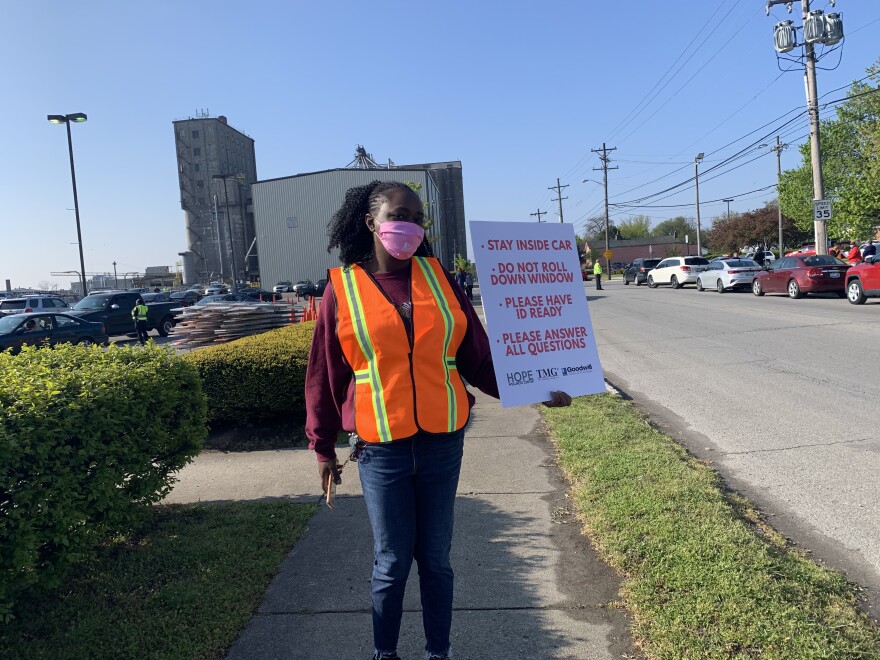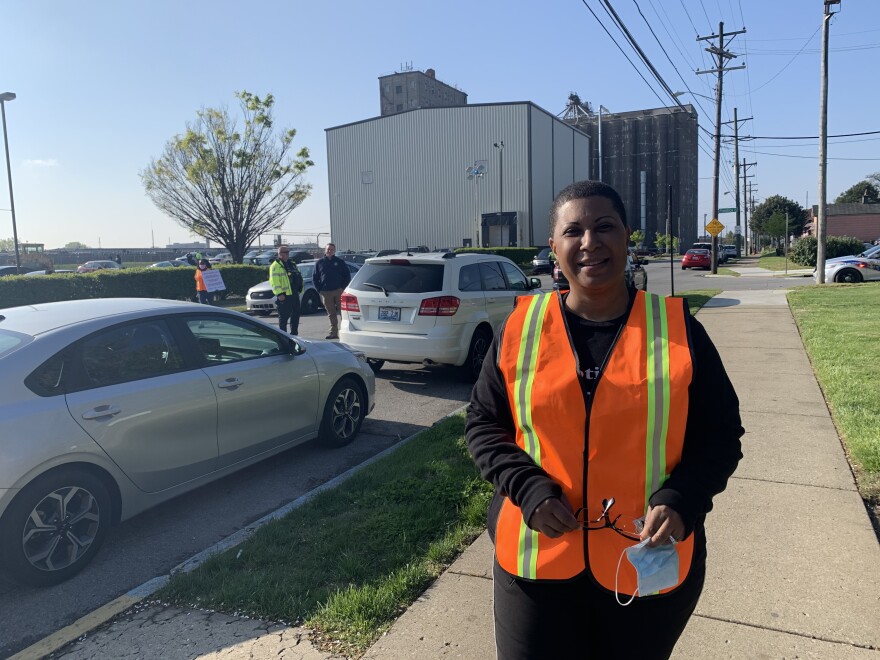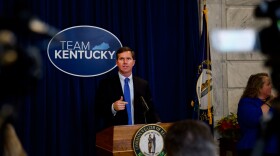The cars started lining up early Saturday morning along 15th street in Louisville’s California neighborhood, crawling slowly towards the parking lot of St. Stephen Church. In normal times, you’d think the crowd was there for a worship service, a wedding or a church picnic.
But these are not normal times. The parking lot was being used as a drive-through coronavirus screening site, put on by HOPE Wellness Center. Unlike other testing sites, this one was open to anyone — whether or not they had symptoms or a doctor’s note.
Ralph Pipkin and his sister Joyce Thomas got in line early, but were still inching along at 10am. Pipkin has been feeling fine, so far, but he’s nervous because of his age. And, he said, from watching the news, it’s become clear that there’s another risk factor at play.
“Being African American, from what the numbers are, it's more prevalent in our community than it is in a lot of other communities,” said Pipkin.
A lifelong resident of Louisville’s West End, Pipkin said it didn’t surprise him when he heard that the city’s Black community was getting hit harder by coronavirus — “on top of a lot of other issues.”
“So I guess we can just put [coronavirus] on our list,” he said, with a laugh.
Despite making up only a quarter of Louisville’s population, Black people so far make up a third of coronavirus deaths. National trends indicate that gap will only widen the worse the pandemic gets.
That’s why the HOPE Wellness Center put on this free screening event, to help people proactively protect themselves — and to understand just how far coronavirus has spread through the community.
“We’ll really almost verify what we kinda already know,” said Terra Leavell, the president of the Black Community Development Corporation, which helped put on the event. “Because of the health disparities generally in the African-American community, this does hit hard because most things do.”
Leavell said they were doing rapid screening with a blood test that indicates whether someone has the virus or has ever had the virus. If that screen came back positive, it would be confirmed with the nasal swab test.
A statewide shortage of testing
Coronavirus tests are hard to come by these days. State officials have set strict guidelines about who gets access to their tests — prioritizing people who have symptoms and underlying conditions, or healthcare workers who develop symptoms. The CDC says people without symptoms are a “non-priority” for testing.
Metro Government spokesperson Jean Porter said in an email that testing people who are asymptomatic is not a priority for the city at this point.
“We do not currently have enough tests to make it a priority,” she said.
Porter said the city is currently able to test “those with the most serious illnesses,” but they will need to do more widespread testing before the city can begin to move forward with reopening.
But Leavell said testing a wider pool of people may catch those who are unknowingly spreading the virus.
“If you’ve been around people who have had symptoms, and you’re just unsure, if you are … working in Kroger, Walgreens, you need to be in this line,” she said, pointing down the block.
Tony Downs is someone who normally wouldn’t qualify for testing, but he’s concerned. He’s 74, and though his apartment maintenance job has slowed down, he’s still working when he can.
“I’m in a high risk [group] and I’m around a lot of people,” he said. “So it’s best for me to get tested now than to mess around and have my daughter put me in the ground.”
Downs’ daughter, Marie, was there to get tested too. She has lupus and breathing issues, and said she’s concerned that people aren’t taking coronavirus seriously enough. If there was more testing, she said, people would know that they’re spreading it.
If they tested positive, Marie said they would “quarantine even more” than they have been.
“Money situation might be tight but hey, health is more important,” she said. “You won’t be able to go any farther if you’re not alive.”
Testing was supposed to run from 9am to 3pm, but the site hit its daily capacity before noon. Lots of people, including the Downs, were instead given a phone number to call to make an appointment to get screened next weekend.
Tony Downs said he burned a lot of gas waiting in that line, but it’ll be worth it if he gets one of these highly coveted tests — and can put his coronavirus fears to rest.






